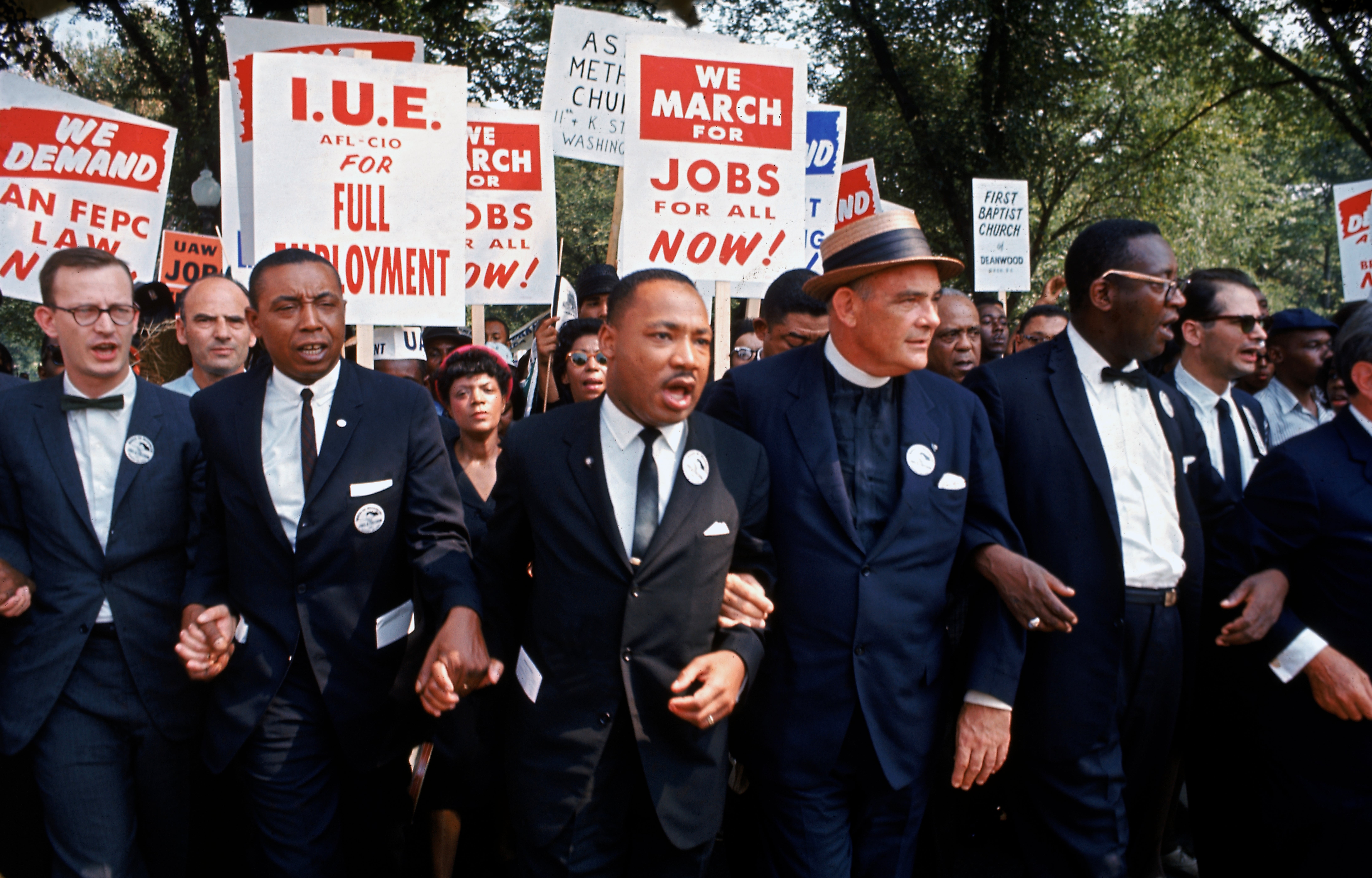
On April 3, 1968, Martin Luther King, Jr. delivered a prophetic sermon in Memphis, Tennessee. His address, which would be referred to as his “Mountaintop” speech, would be his last. The next day, while standing on the balcony of the Lorraine Motel, King was assassinated.
King was led to Memphis many times that year, inspired by Black men striking against the city’s labor practices. Catalyzing the strike, and King’s unwavering support, was the city’s refusal to accept responsibility for a malfunctioning garbage truck that caused the death of two of its workers. The sanitation workers’ rallying cry, “I Am a Man,” symbolized their struggle. But it also reflected King’s increased activism in revolutionizing America’s persistent economic inequalities.
Fifty years after King’s death, his speech to these sanitation workers and his broader advocacy for jobs, economic prosperity and economic independence for African Americans still resonate. His passion for systemic change, and the sacrifices he made fighting for those changes, sharply contrasts the shallow messages for jobs creation stemming from the White House.
Here are 4 ways King’s Mountaintop speech and its advocacy for economic justice continues to inspire us:
1. King argued for fair and safe labor conditions as a human right.
“And that’s all this whole thing is about,” he said. “We aren’t engaged in any negative protest and in any negative arguments with anybody. We are saying that we are determined to be men. We are determined to be people. We are saying that we are God’s children. And that we don’t have to live like we are forced to live.”
Our current corporate culture encourages the belief that Americans should merely be happy to have a job, regardless of its low wages, unfair treatment, or labor conditions. Merely having a job was not enough for the 1,300 Black sanitation workers protesting Memphis’ labor practices in 1968 —where they were forced to work in the torrential rain that led to the deaths of Echol Cole and Robert Walker. And it wasn’t enough for King.
While Memphis’ mayor said the garbage collectors, comprised entirely of Black men, could talk about labor conditions after they returned to work, the resounding message that crystallized their protest was that they were human beings, not slaves or indentured servants subject to an employers’ whims. Their humanity preceded their identity as a worker, and King grounded his Mountaintop speech in this assertion.
2. King recognized Black people’s immense economic power.
“Individually, we are poor when you compare us with white society in America. We are poor. Never stop and forget that collectively, that means all of us together, collectively we are richer than all the nation in the world, with the exception of nine. Did you ever think about that? After you leave the United States, Soviet Russia, Great Britain, West Germany, France and I could name the others, the Negro collectively is richer than most nations of the world. We have an annual income of more than thirty billion dollars a year, which is more than all of the exports of the United States, and more than the national budget of Canada. Did you know that? That’s power right there if we know how to pool it.”
King’s recognition of Black people’s economic power wasn’t merely to recreate capitalism, a system he thought had outlived its usefulness. Rather, he thought of it as a protest tool. He argued that if white companies could not treat their Black employees with respect and equality, then Black Americans could withdraw their economic support and massively hinder the country’s economic system.
3. Strengthening independent Black institutions is crucial to improving our economic condition.
“We’ve got to strengthen Black institutions. I call upon you to take your money out of the banks downtown and deposit your money in Tri-State Bank —we want a “bank-in” movement in Memphis… You have six or seven Black insurance companies in Memphis. Take out your insurance there. We want to have an ‘insurance-in’.”






In addition to advocating for fairness in jobs provided by white employers and economic withdrawal, King argued for Black institution-building. His calls for unity was just shy of the Black Power messaging espoused by the Black Panther Party and other more radical freedom fighters of the era.
4. Economic justice is a moral responsibility for anyone who believes in fairness, whether or not they are personally impacted by injustice.
“Nothing would be more tragic than to stop at this point, in Memphis. We’ve got to see it through. And when we have our march, you need to be there. Be concerned about your brother. You may not be on strike. But either we go up together, or we go down together. Let us develop a kind of dangerous unselfishness…The question is not, ‘If I stop to help this man in need, what will happen to me?’ ‘If I do no stop to help the sanitation workers, what will happen to them?’ That’s the question.”
King knew more than most about sacrifice. In the midst of working on his Poor People’s Campaign, King was led to Memphis three times to support the striking sanitation workers. It was during King’s third trip to Memphis that would be his last. His final words—in which he professed that the threats against his life did not matter because he’s been to the mountaintop and has “seen the promised land”—highlighted King’s “dangerous unselfishness.” Even though his work threatening America’s economic system was probably more dangerous to the status quo than his battles against segregation, he knew the fight was necessary.









